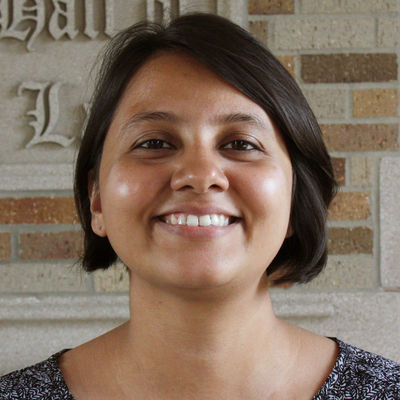Monalisa

Monalisa graduated from National Law University, Delhi in 2013. She works on the intersection of gender and labor rights in India, focusing on unorganized women workers engaged in global production processes, understanding ‘skill’ as interpreted for women workers, and ground-based research to understand inequalities in the workplace. She works with communities to create sustainable models of community based legal aid clinics, holding gold medals in legal aid and community outreach and alternative dispute resolution. Other areas of interest include access to social security, social protection in an era that has moved away from the welfare state models, and understanding accountability of non-state actors in the global production process including application of international human rights standards to domestic work places. During law school Monalisa headed a UNDP-Government of India "Access to Justice" project.
“My passion is the rights of working women and my hope is to build an equal world where women workers enjoy equal rights opportunities.”
How did you first become interested in human rights law?
I think it began from the day I entered law school from one of the least developed states of the country, where rule of law was prominent in its absence. To come to a space where statutes, rules and the Constitution are central, it was hard to really believe in what I was learning. However, it changed when I got involved with community based legal projects, as part of a UNDP project that I also tried to replicate within the university. My projects revolved around unorganized migrant and women workers. The gulf between the law and practice became significant as I worked to ensure access to justice for these groups.
From what or whom have you drawn inspiration in your work as a human rights lawyer?
I am unsure if there is one answer to it. I have learned from women workers who decided to fight sexual harassment at the cost of their jobs, survivors of domestic violence who decided that they had had enough, women who made extremely tough choices between dignity of their labour and their responsibilities; workers who have struggled to build a movement in an extremely hostile environment that exists today. I have learned hard work from my father, resilience from my mother and tenacity from my professor.
What issues do you feel most determined to address as a human rights lawyer?
I say this often, “A world full of confident women, will be a very different world”. My focus has been the intersection of gender and labour rights. My passion is the rights of working women and my hope is to build an equal world where women workers enjoy equal rights opportunities.
What obstacles do you perceive as the most challenging in your work?
It is crucial to remember that workplaces are changing: the push for industrialization also means marginalization of women workers. Ideas like ‘skill’, ‘capability’ and ‘efficiency’ are all basis of evaluating workers and have biased interpretation. Social spending is reducing the world over, which affects women workers more given the needs of working mothers. It is also an era of flexible labour markets and job insecurity entrenches exploitation of labour.
Why did you decide to study human rights at Notre Dame? How has the experience been?
I first read about Notre Dame while I was in law school and looking for places where I would get a rigorous training in law as well as practice. The faculty at Notre Dame, the curriculum and the profiles of LLM graduates made me confident about my choice. The experience has been of tremendous learning accompanied with equal measure of encouragement and support from the faculty. CCHR creates the environment where students can learn, maximize their potential and achieve their goals. It is humbling to be among such extraordinary individuals who invest in you and help you grow.
How will an LL.M. education from Notre Dame allow you to be a more effective human rights lawyer?
I am confident that my experience will surpass what I had thought an LLM would be like. I have already dived into my area of interest with professors guiding me as I explore more. The course structure ensures that we have rigorous training in the law and sound understanding of how human rights practice works. I am also learning about human rights strategies from the rich and diverse experience of my classmates. CCHR’s support enables us to get exposure that helps us build expertise in our area of interest.